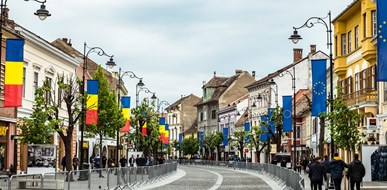Free lecture: The Romanian experience in the EU external relations field
Published 9 September 2019
Romania held the Presidency of the Council of the EU from January to June 2019. © Shutterstock.
How did Romania, which held the Presidency of the Council of the EU from January to June 2019, fulfil its leadership in coordinating regional and global issues during this period? And what meaning will this have for the European Union’s international relations?
Sign up now to find out at our free CLEER Presidency lecture “The Romanian Council Presidency’s experience in the external relations field’ on Thursday September 12 at T.M.C. Asser Instituut in The Hague.
Background
Romania held the Presidency of the Council of the EU from January to June 2019. This rotating presidency of the Council of the EU offers coordinating and representation opportunities for the incumbent member state, the possibility to create ‘ownership’ of EU-related issues at home, gain political influence by leadership, and create a positive image to the outside world. So, how did Romania do during its Presidency in 2019?
These and other topics will be discussed by the Ambassador of Romania in the Netherlands, H.E. Mrs Brândușa Ioana Predescu. Respondent speaker of this afternoon is Dr Joris Larik, assistant professor of comparative, EU and international law at the University of Leiden and member of the advisory board of CLEER. The event will be chaired by Dr Eva Kassoti, Asser senior researcher in International and EU Law and co-ordinator of CLEER.
When?
The lecture will be held on 12 September 2019 at 15.00 at T.M.C. Asser Instituut, R.J.Schimmelpennincklaan 20-22, 2517 JN, The Hague.
This event is followed by a reception.
For more information and registration click here.
For enquiries, please contact Educationtraining@asser.nl
About the CLEER Presidency lecture series
Since 2011, the Centre for the Law of the EU External Relations (CLEER) and T.M.C Asser Institute have been organising a dedicated lecture series focusing on a peculiar element of EU external relations: the role of the incumbent presidencies in coordination and leadership in regional and global issues. The lectures look at the presidency terms in retrospect, in order to assess how the member state fulfilled the aspirations, and what its actions mean for the European Union’s international relations.
